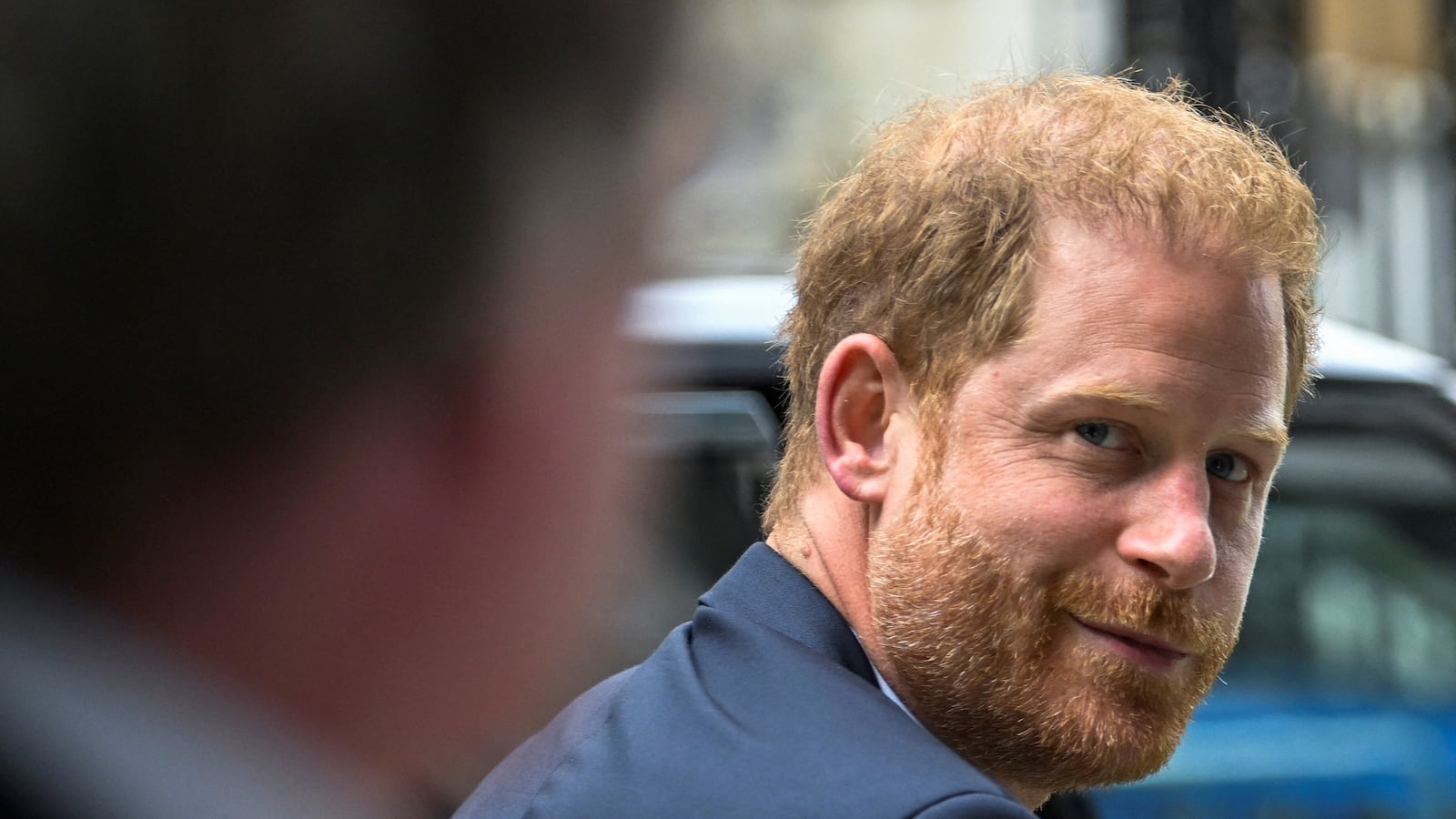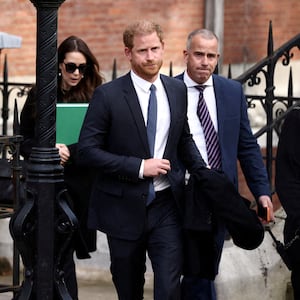Anyone who harbors any doubts about Prince Harry’s mental toughness should now banish them.
On the second day of his cross-examination Wednesday, Prince Harry largely maintained the cool, calm, and collected air he had radiated on Tuesday, when he remained composed and non-confrontational in the face of a 5 1/2-hour grilling.
Once or twice, Harry, who seemed more tired and wearied Wednesday than he had the day before, snapped at his inquisitor, Andrew Green, the lawyer for Mirror Group Newspapers, which Harry accuses of using illegal methods to get information for articles about him in the Daily Mirror and Sunday People.
Largely, however, he kept his head and temper in check, and made credible points, particularly in terms of how the Mirror seemed to mysteriously know all about his and his then-girlfriend’s travel arrangements, which would have been a closely guarded secret.
The broader picture is that to support his claim, Harry has previously produced a short list of more than 100 articles that he claimed showed signs of suspicious sourcing. Of these, a sample of 33 were selected to be adjudicated as part of his claim.
Harry and his legal team submitted a witness statement saying why they believed each of these 33 articles were illegally sourced, and Green’s job was to knock down the allegations.
Green did repeatedly succeed in doing just that because Harry does not have any hard evidence that his phone was hacked.
So a pattern emerged in which Green would ask Harry why he believed a story was based on hacked intel, Harry would say he couldn’t see how the story could not have been based on hacked intel, and Green would say he was speculating, and Harry would be forced either to agree or resort to saying it was difficult to to prove very carefully covered-up criminal activity carried out on burner phones.
The Mirror’s chief royal correspondent at the time, Jane Kerr, is due to be cross-examined by Harry’s barrister, David Sherborne, later Wednesday.
The closest Harry came to landing a blow was on Tuesday, when he said journalists and photographers could only have known about his and his then-girlfriend Chelsy Davy’s travel plans if they had somehow “blagged” the intel from the airline.
But it was hardly the unveiling of a smoking gun; it’s not impossible to imagine that the information could, for example, have come from airline or airport employees (or their friends) seeking a fee for a tipoff from a newspaper. (Kerr, who wrote one of the pieces, may provide some context.)
Yet Harry’s team reportedly felt he did well Tuesday because to win his entire case they only need to establish one instance where the balance of probability suggests unlawful information gathering was used, while MGN needs to knock down every single allegation made by Harry.
The claims and rebuttals had largely already been made in documents previously submitted by Harry’s team and MGN.
And it is not Harry’s job to personally prove in the cross-examination that MGN used illegal methods; much of that work has been done by Harry’s team, who have submitted thousands of pages of supporting evidence such as payment receipts to individuals previously linked to phone hacking. Harry often referred to these payments in his evidence.
The purpose of cross-examination, lawyers agree, “is to destroy, or at least seriously damage, the witness’s credibility” or to “undermine the account the witness has given.”
On that front, despite a few hits for Green, such as managing to get Harry to concede that his witness statement and his memoir, Spare, diverged on his views of his mother’s former butler Paul Burrell, most observers would conclude that Harry did not emerge from this grueling cross-examination a diminished figure.
He even managed to crack a few jokes, at one point telling Green, in reference to the lawsuits he is pursuing against other publishers: “I’m quite busy with other litigations, my lord.”
The court broke for lunch shortly after 1 p.m. local time (8 a.m. Eastern).







